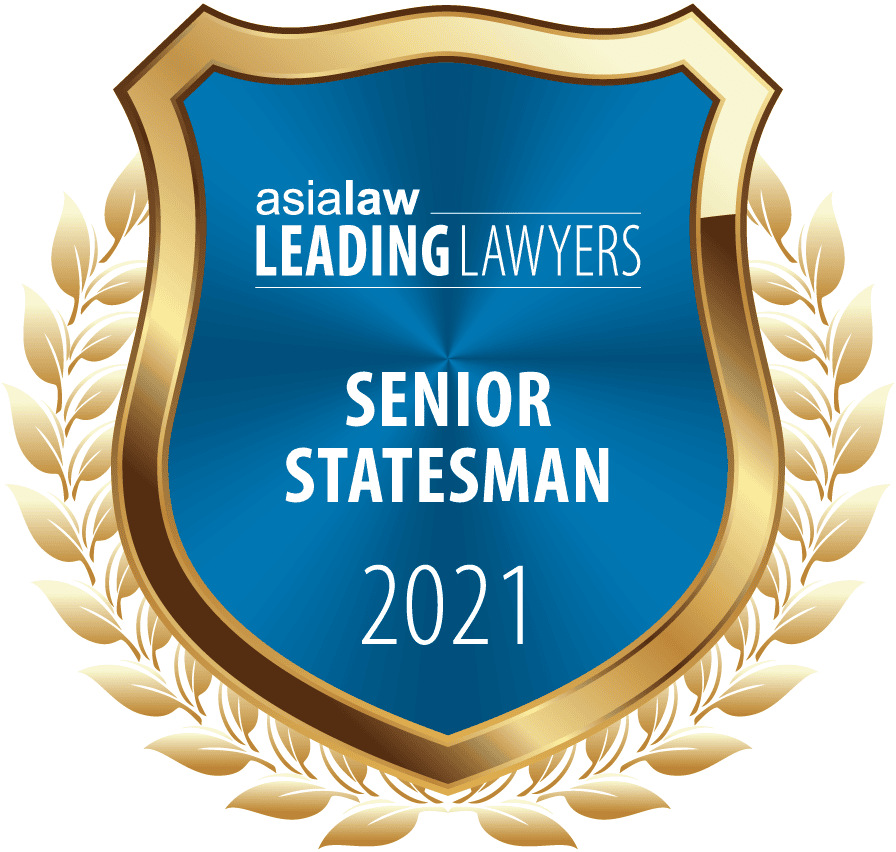内容摘要:
• 香港在内地大灣區規劃中可發揮重要作用
• 香港走出逆境的能力不應被低估
• 香港的連串示威和遊行表明對住房、青年就業和特區政府管治等問題不滿,而這些問題不一定與内地有關。
• 短期內,投資者和有意移民的人士可能會對沖他們部分在港投資,但不會短期内從香港撤資。
• 隨著中美貿易戰改變了全球政經格局,全球地緣政治發展將對香港的長期前景更具決定性。
• 市場仍需觀察國家安全法的具體執行情況
• 只要企業治理,法治,資本自由流動維持現狀,香港作為亞洲金融中心的作用將繼續穩固。
主持人:
- 高李嚴律師行高級合夥人高國峻律師
與會講者:
- Connie Bolland小姐 – Economic Research Analysis創辦人以及首席經濟師
- 卓百德先生 – 環球經濟和房地產專家、希慎興業有限公司獨立非執行董事、龍湖集團控股有限公司獨立非執行董事
- James Hartshorn先生 – Bartra Capital Property Group亞洲區域總監
- 沈旭暉教授 – 香港中文大學全球政治經濟社會科學碩士課程副課程主任
網絡研討會主題:
-最新環球地緣政治局勢和經濟走向
-香港在中美貿易戰中的角色
-相對於主要競爭對手,上海,深圳,東京和新加坡,香港作為環球金融中心的競爭力。
高國峻律師在網絡研討會開首指出,時移世易,我們必須認清社會變革,包括科技、政治和氣候等各個方面,變革速度來得比往日爲快。尤其,香港的社會變化來的特別快。因爲香港發生連串示威和香港捲入中美貿易戰中,客戶會希望知道香港的未來將如何發展。
高國峻律師:
香港、上海和深圳是否都屬於國家總體規劃的一部分?香港是否應該與上海和深圳有更多融合和交流,從而同時壯大三地的發展?
卓百德先生:
部分私人投資可能會撤出香港,但隨著大灣區的發展,香港作為集資中心的地位只會越見鞏固。我們不應低估内地執行大型政策措施(如設立深圳經濟特區)的能力,亦不應低估香港邁入下一個發展階段的能力。四十年前,香港大約有100萬人從事製造業。如今,只剩大約20-30萬人從事製造業。香港的發展經歷了許多周期。只要香港的法治,法律制度,企業治理和資本自由流動保持現狀,並沒有重大改變,香港才能繼續發展。大灣區可能會發展出類似紐約證券交易所/納斯達克/芝加哥商品交易所的三元交易所。由於内地投資者高度重視香港的資本自由流動,香港可以從衆多城市突圍而出。
Connie Bolland 小姐:
從歷史上看,香港的經濟產業轉型相當成功,成功從以製造業為主導轉型成金融中心。可是,中國(深圳)綜合開發研究院發布的《全球金融中心指數》目前將香港排在第六位,排在紐約、倫敦、東京、上海和新加坡之後。因此,我們不可以輕言說上海並不是我們的競爭對手。
香港擁有來自內地以及世界各地的資本投資,龐大的交易量,蓬勃的發展機會以及良好的人力資本。
雖然與上海和深圳的競爭日益增加(尤其深圳銳意發展為科技中心),但香港仍能吸引內地以及其他國家的科技公司來港上市,集資發展業務。新加坡則是主要吸引印尼和越南的初創公司到其交易所上市。而東京主要吸引日本的公司到其交易所上市。縱觀整個亞太地區,對比各個資本市場,香港仍然擁有一個較為蓬勃和成熟的資本市場,於市場份額中處於領先地位。
高國峻律師:
您對香港交易所作為粵港澳大灣區發展規劃的一部分有可看法?市場會否擔憂香港將不再擁有高度自治,從而引發信任危機?
沈旭暉教授:
作為一個土生土長香港人,我對香港前景感到悲觀。內地試圖套用新加坡模式作為治港藍圖。可是,國際社會對此回應不但並非為正面,更對此採取嚴厲的態度。
市場一般期望美國只會採取較為象徵性的制裁。可是,現在美國已經進行第二輪甚至第三輪的制裁,這將影響香港的經濟以及銀行業。市場和投資者可能不再相信香港與內地有實質區別。他們可能會把資金轉移至東京,但這並不會再在短期內進行,至少需要4-5年的時間。短期內市場可能會開始對沖,分散在香港的投資。市場認為香港一貫實行的規則和慣例正在改變。由於投資者有眾多的選擇,他們現在可能會進行對沖,並分散在港投資,而選擇投資其他地方,例如東京。
高國峻律師:
香港的遊行和示威衍生暴力,也令人不安,遊行和示威的背後成因為何?
沈旭暉教授:
泛民主派需要負上部份責任。可是,政府一直未能解決香港的房屋和生活成本高昂的問題。香港是全球居住成本最高的地方之一。從2009年開始,房屋價格增長了280%,但整體薪酬卻沒有錄得同樣升幅。扣除通貨膨脹等因素後,實際收入實際上下降了。教育成本高昂、醫療質素下降也是問題成因之一。香港市民有權要求基本的經濟和生活條件。
Connie Bolland 小姐:
同意,遊行和示威是由於行政長官是由缺乏認受性的選舉產生,而不是按照《基本法》所期許的普選產生。泛民主派需要負上部份責任。但與此同時,政府在多個範疇都不願進行改革,回應民意。政府同時未能讓社會各方進行有意義和有建設性的對話,同求出路。由於住屋價格連年上升,市民整體居住質素有所下降。與此同時,青年就業也是一個重大問題。雖然整體失業率為6%,但目前青年的失業率已經超過10%。這些青年大多受過良好教育,渴望貢獻社會。除此之外,政府最大敗筆為處理人口問題。自1997年以來,在大量移民湧入的情況下(大概200萬人),政府沒有推出相應的政策措施。因此,市民普遍對此感到不滿。雖然旅遊業能拯救本港經濟在2003年非典危機面對的低谷,但旅遊業同時亦帶動租金上升,市民的生活成本因此日益增加,引起不滿。上述所有社會問題所引起的民憤便一併爆發出來。
高國峻律師:
40年以來,從來沒有一屆政府比現屆政府更為不力、更為缺乏想象力。行政長官自己承認只擔當行政職務。市民希望政府能有所作為。您對此有何看法?
沈旭暉教授:
我們對於政府目前管治模式感到憂慮。市民期望「一國兩制」能有效實行。隨著中央政府對參與香港管治的信心日益增強,一個與市民期望有所不同的治港模式正在衍生。
我清楚地記得,2008年在北京舉行奧運會時,香港人為自己作為中國人的身分而感到自豪。香港現時已出現取態上的重大分歧。實際上,香港局勢本來並不那麼嚴峻,可是,政府並沒有採取任何回應市民需求的政策。隨著事態發展,參與遊行的市民不限於生活環境惡劣的人,而有更多中產階級和學生參與。這些人大多受過高等教育(包括那些曾經在外國留學的人),他們並沒有面對居住環境變得惡劣的問題。房屋問題確是一個嚴峻的問題,但遊行和示威同時將社會上不同界別的人連合在一起。我敢說,即使建制陣營也對國家安全法有所不滿。
高國峻律師:
現時尚未有法庭判詞解釋國家安全法,所以現時審視國家安全法的實施似乎言之尚早。其實特區政府從1997年開始已經有機會就國家安全立法。可是,由於特區政府未能就國家安全立法,所以中央政府便為香港就國家安全立法。每個地區都需要應對恐怖主義和分裂行為,今次立法有何不同?
沈旭暉教授:
殖民地時期的煽動罪一直存在。再者,今天其他國家也有自己的國家安全法。現在的主要問題是,特區政府在1997年之後的 23 年都未能就國家安全立法。可是,北京政府單方面為香港就國家安全立法。此舉甚至超出了部份建制派的預期。我的同事身處世界各地,不論身處美國還是英國,現在都必須採取適當的預防措施。國家安全法的條文也是一個問題。我們可做與不可做的界線非常模糊。任何個人行為都可以隨意被起訴,因爲當局尚未劃清行為和言論的紅線。希望在一兩年後,我們會了解更多。
高國峻律師:
市民都渴望穩定性,同時亦用他們雙腳投票。在 1997 年之前,不少香港人去了溫哥華,但 99% 的人最後都回來了。唯一的結果就是溫哥華房價暴漲。這次會有所不同嗎?
James Hartshorn先生:
是的,移民到其他國家的人數肯定會激增,但目前實際上只有一小部分人正在辦理移民。例如,我們發現 300 名持有移民簽證的人中,只有 20 人移民到海外。市民都將移民視為一種安全機制、一種後備計劃。近代史上曾出現過三大移民潮,天安門事件後、1997 年回歸前和現在。
在 2020 年 5 月的高峰期,我們發現曾經有 41,000 人次在線搜索「移民」一詞。我們有 50 名來自香港的客戶移民到愛爾蘭。目前的情況來看,愛爾蘭是較鮮為人知的移民目的地之一,而加拿大則是最著名的移民目的地。市民目前對英國就英國國民海外護照(“BNO”)的最終政策抱持觀望態度。BNO持有人會被允許在英國居住 6 個月或更長時間嗎?有多少人會真的選擇移民到英國?上述一切都充滿不確定性。
高國峻律師:
今天的聽眾大部分都是法律界人士,他們的客戶不少都是基金或在香港進行各類的商業活動,他們應該擔心未來的局勢嗎?
Connie Bolland 小姐:
香港美國商會最近的一項研究顯示,在接受調查的 180 家公司中,有 77% 的公司擔心國家安全法,因為此法的具體執行含糊不清。因此,儘管大多數人都不會立即離開,但不少人仍然抱有憂慮。在接受調查的人士中,53% 的人有應急計劃,而66% 的人對前景感到悲觀。
沈旭暉教授:
雖然很多人說要離開香港,但這裡的白領薪酬較高,令不少人卻步。許多在職人士寧願留在香港工作,而將他們的妻子和兒女送到海外。這種模式將繼續下去。一些投資將會轉移到海外的其他市場,但一般在職人士將在香港留最少兩到三年,而未有逼切移民需要。中央政府將繼續努力吸引國際投資者來港投資。我認為,我們現時已經非常接近「一國一制」的制度,所以短期內北京會嘗試讓內地企業來港上市,從而為這裡的美國投資銀行家提供就業機會。主要的不確定性其實在於全球地緣政治局勢。中美脫鉤會成為現實嗎?中美脫鉤將如何發生?中美關係已經過了不歸路。在過去的十年中,中國企業在美國進行了大量投資。我們必須密切留意全球地緣政治局勢,以了解長期趨勢。
高國峻律師:
我們不單需要面對示威、新型冠狀病毒和國家安全法的衝擊,我們還需應對中美貿易戰的挑戰,因為我們不再被視為與內地有區別。香港在這一切中將扮演什麼角色?
卓百德先生:
現時一切發展都非常微妙。這一切都始於美國和特朗普,但歐洲都加入了與中國競爭的行列。中國的不公平貿易行為和不符合世貿組織期望的行為令人驚奇。特朗普現時專注與中國競爭。整個世界現時都觀望美國的行為。歐洲理事會本週發表了一篇嚴厲抨擊中國貿易政策的文件。此舉與美國無關。無論中國會否採取反制措施,香港都難免成為夾在中間的磨心,不論香港一直以自由貿易中心運作與否。我們將密切留意美國大選的結果,觀看新一屆政府的對華政策。
高國峻律師:
如果你認為你在香港什麼都做不了,這會不會是一種過於簡化的看法?北京大可以說,香港已經享有高度自治。北京也可以說他們從來沒有干涉香港事務,即使香港曾經發生暴力的示威活動。我們應該在香港做些事情,為市民帶來希望和光明的未來。
卓百德先生:
我們樂見香港領導階層表現出一些領導力。港區國家安全法源於中央政府認為特區政府不能有效處理內部事務,所以需要中央政府就此立法。也許他們有一個很好的觀點。
沈旭暉教授:
香港對內地的的重要性被低估了。香港對內地的重要性不能只從GDP反映,而是香港作為內地外匯中介的角色,此角色暫時仍未被其他內地城市取代。如果我們有更好的政府,香港仍然可以發揮重要作用。香港與其他身處海外的港人較為富裕,亦擁有緊密的網絡,能夠建立第二經濟體來維持香港的經濟。香港長遠仍有前景。
Connie Bolland 小姐:
香港必須確保資本市場保持自由和開放,並鞏固健全的法治。這兩點與良好的企業管治將阻止香港的作用被削弱。1967年香港暴亂期間,當年我還是個小女孩,親歷屋頂上設有機槍的情境。騷亂過後,麥理浩總督徹底改革了香港的基礎設施和醫療體系,以改善民生。海底隧道便是那個時代的產物。現在我們有什麼東西可以給予和提供?領導階層需要就此思考,並提出創新的觀點。
James Hartshorn先生:
過去一直有關於上海取代香港的傳言,但這將不會發生。香港享有健全的法治和新聞自由。就目前的情況而言,資本的自由流通將不會有任何限制或改動。香港的財政狀況讓各地政府羨慕,此情況將不會有特別大的改動。
高國峻律師:
今天的研討會到此為止。我們將密切留意內地有關香港的政策法規。北京政府擁有務實、耐心的計劃。例如,北京現在進行最大規模的空氣淨化,以改善污染情況。
我記得一句古老的格言,到達破產法庭的最快方法,便是聽取專家的建議。本次網絡研討會的目的不是要給出任何答案,而是為聽眾提供一些深入的背景知識,以做出更佳的商業決策。感謝今天所有參與的與會講者。
高李嚴律師行是一家總部位於香港的律師事務所,擁有 40 名律師,在上海設有辦事處。它是 Globalaw 的創始成員。Globalaw 是一個領先的全球專業網絡,於 1994 年創建,由 85 個司法管轄區的 110 家律師事務所組成,宗旨為提供個性化的法律服務。
 香港中環雪厰街二號聖佐治大廈五樓503室
香港中環雪厰街二號聖佐治大廈五樓503室 +852 2868 0696
+852 2868 0696









